Hades is my game of the year. It’s also the game of the year. I don’t mean to say that Hades is objectively the best, because that’s an impossible metric (and also Baldur’s Gate 3 isn’t out yet). Rather, developer Supergiant’s Greek mythology-flavored action roguelike is, improbably, the game that best characterises the year 2020.
(This review discusses Hades’ story in a fair amount of depth and includes both minor and major spoilers. I’ve denoted the sections where major spoilers occur. If you haven’t finished the game — and I mean really finished it — and wish to avoid spoilers, probably skip those sections.)
As other writers have observed, Hades, which entered early access in 2018 and recently launched its 1.0 version after almost two years of additional development, is about being trapped inside a house — the house of your crappy dad, Hades, specifically — and coming to terms with the fact that you cannot leave. More than that, it is a game whose structure and story are both rooted in repeated, inescapable failure. As Zagreus, the son of Hades, you try to slash, shield bash, spear, bow, punch, and gun your way out of hell, but no matter how many demonic shades fall after (ode to a Grecian) earning your ire, you end up back where you started.
2020, in case you yourself are a celestial being who exists outside of time, has been a year of constant setbacks. It began with a horribly mismanaged pandemic that’s claimed over 200,000 lives in America alone. Now each passing moment brings fresh tragedy or injustice. Every day, we learn of yet another failed effort on the part of good people to so much as toss a wrench into the gears of an endless number of greedy, uncaring machines — many of which have been running in some form or fashion since before any of us were ever born. We get sick. We lose our jobs. Or some combination of the resulting tension and time/distance strain the small handful of relationships we value most. As the year comes to a close, it feels like even precious patches of gained ground are slipping into the abyss. It’s become hard to focus, hard to see a point in fighting, or even just keeping up the mundane pretenses of daily life, in the face of an unabating slide into mask-off despotism.
Hades is a game about what people do once they’ve realised that failure is inevitable. How do you spend your time when you live in a house built on a foundation of a failure, when all you and those around you can do is fail, when failure will come whether you act or choose to do nothing at all? Sure, the people in Hades’ case are Greek gods, but Greek gods are just people with better muscles and (slightly) worse decision-making skills when they’re horny.
Supergiant describes Hades as a roguelike, but only because there’s not really a good genre descriptor that sums up what it really is. In between action-based runs through the ever-shifting halls of Tartarus, Asphodel, Elysium, and the Temple of Styx, you spend ample time talking to various gods, goddesses, shades (ghosts, basically), and Dusa, who defies categorization. Also Cerberus, who is both bigger than all other dogs and has three heads, thus making him quantifiably the best boy. You can give these characters gifts to strengthen your bonds, but just conversing with them over the course of countless runs is enough to peel back many of their layers.
You get to know these characters as 10 hours give way to 20, 30, 60, and onward. When I first encountered Achilles while playing Hades’ early access version over the summer, I thought he was a dreary shadow perpetually posed against the same dull wall. Now, months later, he’s like a father, brother, and maybe more to me — a font of generosity in spite of his own past failures. These slow-build interactions, which sometimes move at a speed akin to that of real-life relationships, are just as central to Hades as making a mess of Hell on your way to the surface. Characters, in turn, react to your progress and deeds, some of which come to directly involve them. Given the number of possible permutations of your progress both through the game and with various characters, it is a mind-bogglingly complex narrative system that somehow manages to feel coherent at almost all times.
You can also go fishing. And renovate your house!
These relationships mean that Hades’ goals are fundamentally different from those of other roguelikes, many of which prioritise difficulty and mastery above all else. Hades builds upon that foundation, but despite a focus on failure, the game isn’t actually about the player beating their head against a series of brick walls until they finally break through.
Now that many of my friends have started playing Hades, I’ve heard a few of them express frustration about particular bosses or their struggles in certain areas. I always tell them: “Give it a few more runs. You’ll get past that part, and then, a few more runs after that, you’ll be amazed that you ever had trouble in the first place.” Note that I do not say, “You’ll get past that part if you use weapon X or employ strategy Y.” Because those particulars do not matter.
Despite being a game that can easily last 80 or 100 hours (if you want to do and see everything, anyway), Hades is a game that respects the heck out of players’ time. Each run yields some form of tangible progress, both in terms of character dialogue and items that can be used to permanently boost your stats, making you better able to withstand whatever challenges you face. Fights also do a subtly sublime job of preparing you for future fights; enemies and bosses call forward to each other. You might stroll into the gargantuan Bone Hydra’s lava lair for the first time and think “Oh god, I’m about to get my arse kicked,” but you’re never actually in over your head. Even if you’re having trouble making bone-heads or bone-tails of its attack patterns, you’ll eventually gain enough HP and death defiances (think “lives” in classic games) that you’ll have ample room for error. If that’s not enough, you can also toggle on “God Mode,” which gives a slight, steadily increasing boost to your damage resistance after each failed run. It makes narrative sense — you’re a friggin’ god, after all — and it doesn’t lock you out of anything.
But even if you rough it, like I did, you’ll likely become powerful and savvy enough that you’ll eventually gain the presence of mind to start working your creative muscles. Each Hades run is full of randomised powerups and “boons” from various gods and goddesses that imbue Zagreus with additional powerful abilities but only last until you die. To give just a small handful of examples: Athena can put a shield around your default dash ability, allowing you to slam enemies’ projectile attacks back into them. Ares can add “Doom” to your regular or special attacks, which causes enemies to take a burst of damage after they’ve been hit (you can stack these bursts and add all kinds of fun modifiers to them, too). Artemis can boost your critical hit chance through the roof. Zeus adds lightning to abilities, because that is his main thing (aside from very bad horny decisions).
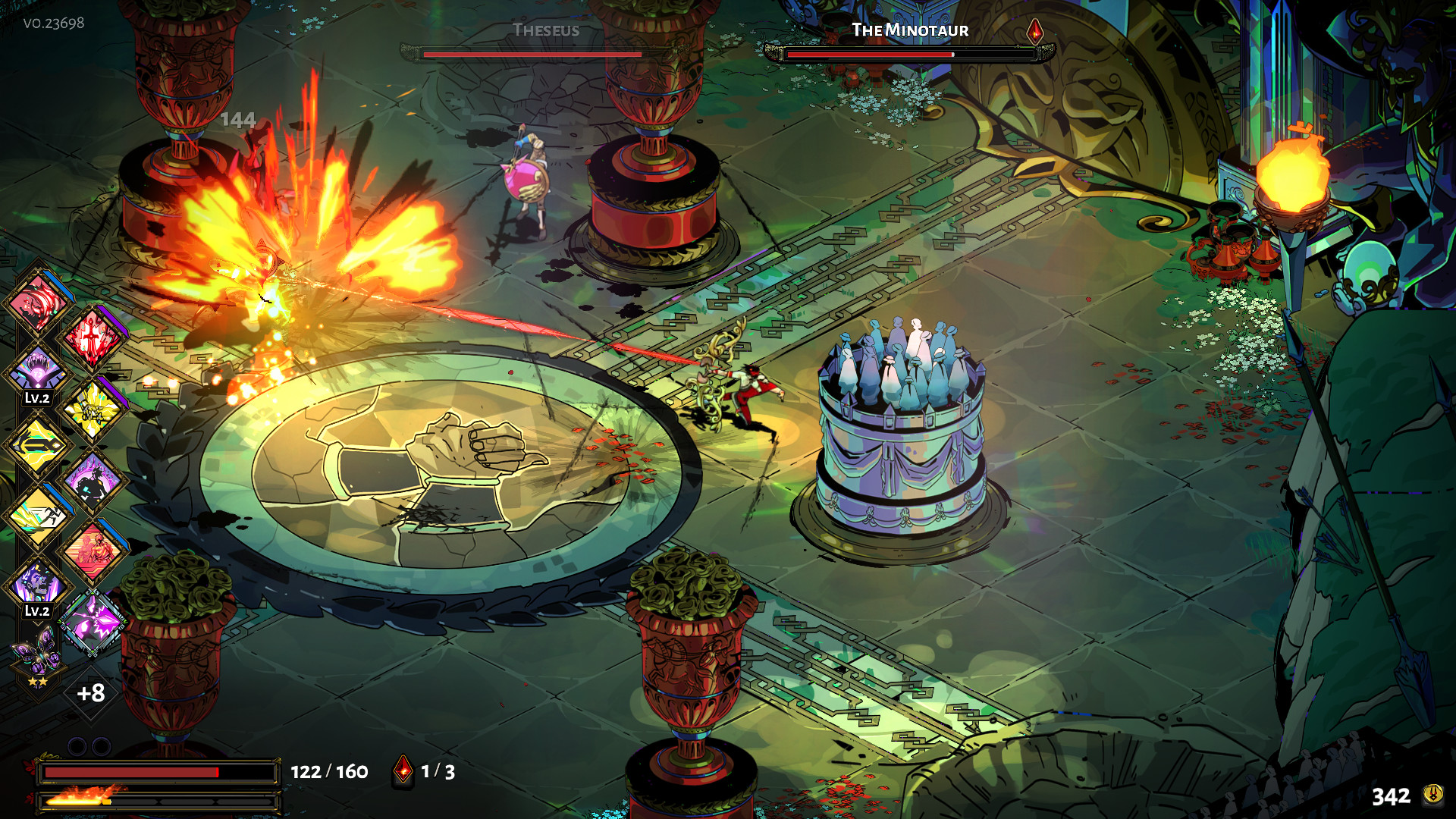
I have yet to find many wrong choices here. There are definitely builds that will just melt bosses, but unlike in other roguelikes, I’ve never felt the need to seek out guides or optimal builds to give myself a real chance at success. I developed my own play style over time, and it works for me, even if it sounds — as I’ve said previously — heretical on paper. No matter which weapon I’m wielding, I never stop dashing. I don’t really use my special or cast attacks much. I focus my boon selection on raw damage and critical hit chance. I seek out Athena’s shield with religious fervor. All of this transforms Zagreus into a sort of disco ball spam cannon, and it’s a great time. I’ve completed over 20 runs, many of them with the “heat” (a set of conditions players can activate to make Hades harder, in exchange for better rewards) turned up. My method, crude though it might be, works. But I’ve also watched my partner, friends, and various Twitch streamers take other approaches that may or may not be equally effective, but are nonetheless viable, if not better.
Hades presents the illusion of difficulty and a brutal learning curve, but it ensures that, no matter what, everybody will eventually get over the finish line. Its ever-changing labyrinth is a hall of mirrors, but not in a maliciously deceptive way. Rather, it intentionally seeks to invite players into a genre that, for some, has previously come across as alienating or daunting without removing any of the underlying substance. No matter how you play, you experience the tension of staring down imposing bosses, the thrill of accidentally assembling your dream build. You die a whole, whole lot, but you do it at your own pace.
This brings us to Hades’ central contradiction: It is a game about failure, but it’s deeply concerned with your success. However, even when Zagreus succeeds, he still fails. He makes it to the surface — pulls off his grand escape — only to wind up back in Hell’s famed blood pool, up to his eyeballs in death. The journey isn’t really about overcoming the system you’re trapped inside of, because you can’t. Zag tries, and then he dies. Regardless of extenuating circumstances along the way — and there are many — this remains a constant.
(Major spoilers begin here.)
Pinched between the cruel fingers of The Fates, Hades’ story becomes a tale about reframing failure. When what you really want remains just outside your grasp, what can you do? A whole lot, it turns out. While Zagreus’ escape attempts never, say, save the world or change the course of Greek myth, each one slowly but surely improves the lives of those in his community. Initially, this is largely the byproduct of a self-serving approach: You clean up the lounge in the house of Hades so that you can exchange gems, won during runs, and other currencies for additional items and currencies that help improve subsequent runs. You give gifts to characters in exchange for “keepsakes” that yield special bonus stats and abilities for as long as they’re equipped.
Other improvements follow, but they take on a decidedly less selfish, more personal bent. You help Orpheus, the dour but good-natured musician, rediscover his muse. You reconnect Achilles with his lost love. You get Megaera and her, uh, very different sisters back on speaking terms. You make a bunch of cosmetic improvements to the lounge that don’t do jack for your escape attempts, but they make the life of Dusa the Gorgon, functionally an overworked housekeeper, easier.
It takes a long, long, long time for Zagreus’ relationships with his closest blood relatives to improve, but in the meantime, he creates meaningful bonds with his found family and makes his homeland a more livable place. Not only that, he reveals himself to be the kind of guy who’ll just listen to random shades talk about how they died, helpfully bring fish to the lounge’s chef, and even just quietly celebrate whoever most recently took home the title of lounge employee of the [incalculable amount of time because the future is also the present in Hell, sort of, it’s hard to explain]. Zagreus never stops being a spoiled prince, but he comes to regard everyone around him, regardless of status, as people with their own wants, needs, and existences.
Zagreus begins his journey trying to get the hell out of Hades. He seeks to escape, heedless of what that might mean for those he leaves behind. There’s a sort of nihilism underpinning this: Sure, he has a very personal reason for departing, but he also sees the place itself as emblematic of his father’s failure. It’s beyond redemption, so why stay? Over time, though, his focus shifts. There is no big revelation, no on-the-nose “aha” moment that heralds this change in his personal trajectory. He just sort of starts helping other characters and rebuilding a place that’s fallen to pieces after eons of structural neglect, and even as his own situation reveals itself to be more and more dire, he ramps up his efforts. Other characters, in turn, go from being quietly insulted that he’s leaving to openly pleased that he’s staying and finally pitching in. By the time it becomes abundantly clear that Zagreus will never be able to leave Hades, you get the sense that he’s made his peace with it. He’s figured out what he can do, and though it’s not as grandiose as his original plan, it might be more important.
I began playing Hades near the beginning of this summer, when it was still in early access. The game’s ending was fundamentally different back then, as it had been in various permutations since 2018. In the mid-2020 version of the game, you squared off with Hades and, if you sent him packing, Zagreus would try to proceed onward into Greece, only to suddenly be torn asunder by some unseen force as he crossed the threshold. “Is there no escape?” text at the top of the screen would ask. Then Zag would awaken back in the old blood pool.
This was a very bleak ending! As I did subsequent runs to see more character dialogue and unlock upgrades, Hades continually asked Zagreus why he even bothered; all that awaited him was an endless series of painful, pointless deaths. I spent probably 30 hours of game time with those stakes firmly in place. Zag would turn back the forces of hell, beat up his dickbag dad, and then die gruesomely as some invisible hand wrung him out like a dish towel. This put the hopelessness of the situation into stark focus. Zag was trapped in Hell in multiple senses: the physical location, sure, but also the pure misery that is doing something repeatedly in hopes of creating change, only to produce the same results every time.
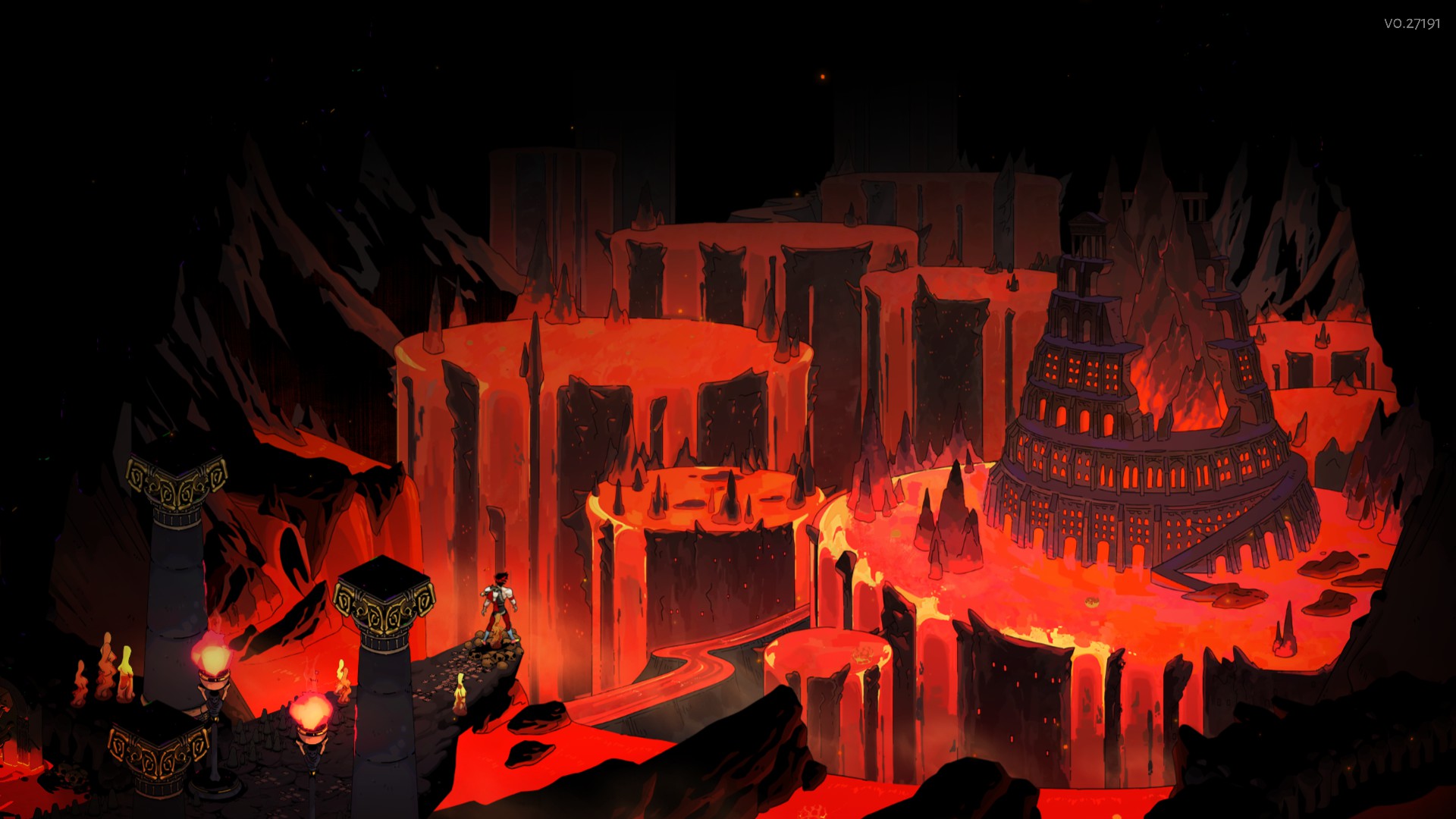
But this also forced the spotlight onto the tangible outcomes of Zagreus’ actions. Despite his deaths, the lives of those around him improved. The house of Hades did, too. I chose to make those improvements because I didn’t have much else to do with the resources I was amassing. But it felt good. It felt like an extension of who Zagreus had become while stuck in the blades of this nightmarish blender. The system Zagreus found himself trapped in was hopeless, but the situation was not. Life was not. It was an extremely powerful statement delivered through a combination of mechanics, narrative, and an incomplete game.
I kinda wish that was still the ending. But due to the fickle nature of early access, that version of Hades no longer exists. A large chunk of the game I played is not the game people are playing now, but that portion indelibly coloured my experience. The game I played told a different story that, intentionally or not, made a different point. Until, as of the full 1.0 release, it didn’t.
In both early access and the 1.0 release, in addition to escaping from Hades, Zagreus also wants to find his long-lost mother, Olympian goddess Persephone. He didn’t even learn she was his mother until adulthood, long after she’d both secretly moved to and eventually fled the underworld. In the version of the game where Zagreus’ goal was unattainable, this didn’t matter all that much. It could have been anything else, but due to the structure of the game at the time, it would not have impacted what, in its absence, ended up feeling to me like the point of the story.
In the 1.0 version of the game, after you defeat Hades, Zagreus leaves the confines of hell and finds Persephone. After a brief bit of long-overdue mother-son bonding, Zagreus becomes weak and dies. It turns out he can’t survive topside for long. The game then turns into a series of jaunts to the surface (assuming you’re able to defeat Hades each time) wherein Zagreus frantically scrambles to learn bits and pieces about why his mum left, what Hades stood to gain by hiding it from him, and how to get his mum to return to the underworld. I read most of these conversations as a doomed effort. Persephone had regrets, sure, but she liked the life and home she’d built for herself and did not seem to be in a hurry to get reacquainted with the lord of the dead. That was fine with me. My parents are divorced; when I was a kid, I wished more than anything that they’d get back together. In reality, they’d already stayed together longer than they should have for my sister and me, and it made them both miserable.
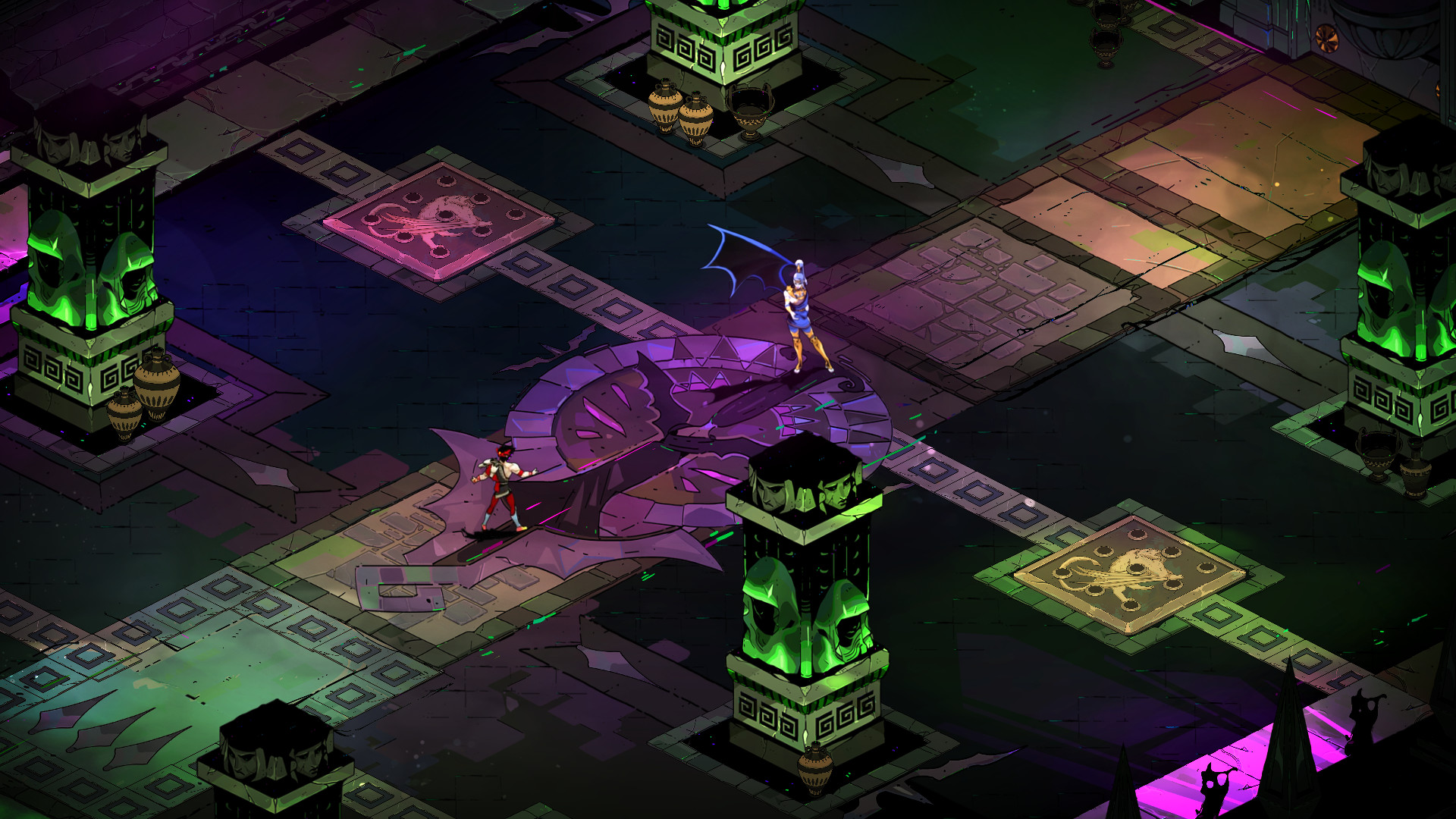
In Hades’ release version, Persephone ends up returning with Zagreus to the underworld after you defeat Hades 10 times. The two of you hop into a small boat captained by Styx boatman-turned-item-salesman Charon, and the credits roll. It’s a nice moment. Then, in a post-credits scene, Persephone forces Hades to more or less own up to his bullshit. It all feels a little too tidy. Years of verbal and physical abuse, a colossal web of lies, a stoic belief that Hades knew best that ended up pushing everybody he cared about away, and leadership that caused a kingdom to crumble, and all his own son gets is a quick “Oh dip, my B”? Admittedly, it’s a bit more complicated than that, and Zag does hold Hades accountable for most of his wrongdoings. But when I first watched the scene play out, it still didn’t feel true to the otherwise nuanced nature of the game. Plus, questions remained unanswered: How would the other Olympian gods react to the illicit presence of one of their own in Hell? They’d waged earthshaking wars for less, after all.
This ending was, to me, a grand anticlimax. Fortunately, Hades was not over. After beating Hades, you haven’t beaten Hades. After beating Hades 10 times, convincing Persephone to come home, and watching the credits roll, you haven’t beaten Hades. Even after the credits, the game goes on for hours and hours. While some players, myself included, have reached Hades’ final scene, they still haven’t puzzled out exactly what number of runs or other preconditions trigger it. But as with everything else in the game, it seems to be inevitable. You just have to keep making runs and talking to characters, who react to the sudden return of their queen. You just have to stick with it.
(Major spoilers end here.)
I cannot evaluate Hades without factoring in the period of time in which I played it. This is true for basically all games: How many classics have you spent years nostalgically pining for, only to realise upon finally replaying them that you were actually longing for a simpler time or circumstance? But I think this holds especially true for my read on Hades, both in terms of what resonated and what left me feeling a little conflicted.
I first started playing Hades around the same time Black Lives Matter protests erupted across the nation. It feels like an eternity ago, at least in terms of the sense of possibility that gripped The Discourse at the time. It felt like people were really waking up to the bloody havoc police regularly wreak on Black people and the structural damage that communities endure so that police’s coffers can remain overstuffed. Perhaps more importantly, it seemed like Americans were no longer writing off alternative ideas about how to improve communities. Activists have advocated for abolition and defunding for at least as long as militarised police forces have existed, but earlier this year, it briefly felt like the moment they’d been fighting so hard for had finally arrived. Defunding became a mainstream talking point. It seemed like, perhaps, at least in Democratically-led cities, people could begin forcing fundamentally unjust systems into a shape that vaguely resembled justice.
But, as we all know by now, things haven’t worked out that way. As the months drew on, police abuse of protesters continued unabated as major media organisations fixated on property damage instead of human lives and the police’s role in instigating violence. Far-right extremist militia members shot people and sought refuge among police ranks. Now we stand in the crosshairs of a Presidential election that seems poised to spark off even worse violence in the streets and potentially steal away whatever small semblance of democracy remains in this country.
Hopelessness is in right now. How could it not be? People rose up, but the historically awful status quo rose higher. What is there left to do but go on Twitter and Facebook and post different variations of “We’re fucked” alongside whatever headline you read most recently? I’m a white guy in no present danger beyond what I subject myself to. Despite this, I spent a lot of the summer despairing.
I will not go so far as to say Hades got me through it. At this point in my life, I am sceptical of games’ ability to do things of that magnitude. But as the summer wore on, Hades’ story of somebody refusing to despair in the face of overwhelming systemic failure and instead pivoting into helping rebuild his community and support his found family took on a new significance. I watched people much smarter than me talk about how hopelessness is useless, good causes are gaining ground in smaller ways, and no matter where you live, there are vitally important grassroots organisations that anybody can contribute to — people need only seek them out. I knew this logically, but that didn’t reassure me much. Hades helped me feel it.
In the coming months and years, things are likely to get worse. But in recent times, Hades has given me some darn good days, and much more importantly, it’s helped me keep in mind that literally everybody is capable of giving somebody they’re close to — or just some rando, or a group of randos, or whatever — a couple of good days. In time, that can and hopefully will coalesce into something larger. In the meantime, it’s what we’ve got, and it’s not nothing.
(Major spoilers begin here.)
While sticking with Hades for what I thought was going to be an additional day but turned out to be an additional week of late-night “just one more run” sessions, I found the game’s epilogue — which unfolded in the same format as the regular game — to be much more complicated than its too-neat ending. During or after runs, Zagreus and Hades would regularly jaw back and forth about their broken relationship — both engaging, finally, in something resembling good faith, but with Hades continuing to insist that his actions were partially justified and his abusive habits were immutable. Meanwhile, Zagreus and Persephone tried to build a relationship, but it was clear that they had a lot of lost time to make up for.
Still, when the game finally “ended,” it wrapped up with an optimistic but messy message about family, which you’d expect from a game starring famously dysfunctional Greek gods. By this point, Zagreus’ role within the house of Hades had also changed. Instead of trying to actually break out, he’d become an official staff member tasked with testing Hell’s defences and keeping up appearances so that no nosy Olympian gods would come a-knocking. He’d more or less been assimilated into the broken system. He’d gained a seat at the table, but the status quo endured.
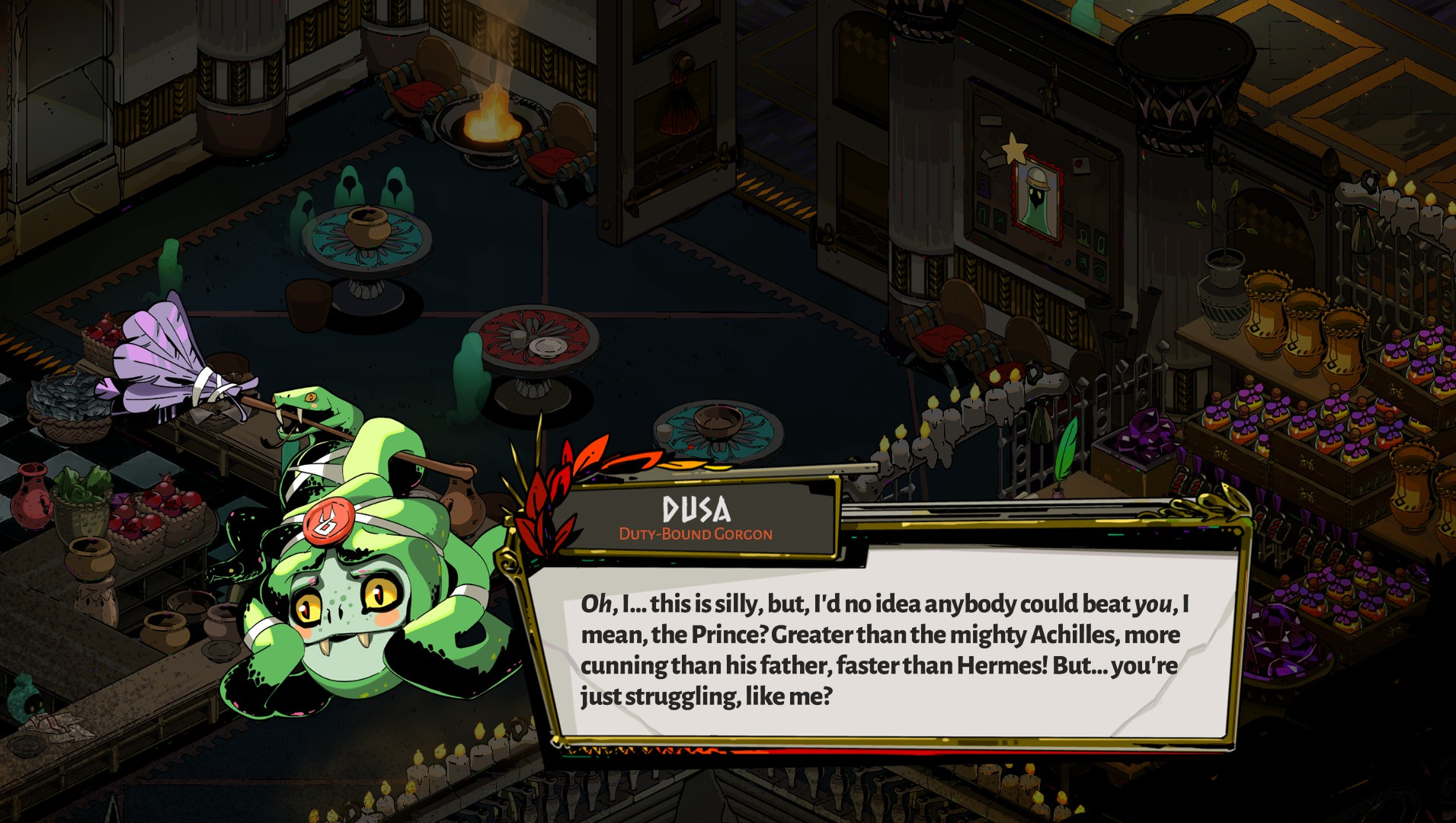
It left me wondering if a game that needs you to be able to run through it infinitely could ever actually be about dismantling a structure, rather than reifying it. But Hades is a gargantuan game about many things. I can’t knock it too much for veering off course at the end, especially when what resonated most with me probably wasn’t even the final destination to begin with. Hades isn’t just a game about failure. It’s also about family, sacrifice, the lies people tell themselves, and a whole host of other subjects. It takes source material that is often quite dark and a central narrative that is very grim and comes out with something that is remarkably lighthearted. It’s a heck of a balancing act, but Hades pulls it off. Supergiant has managed, against all odds, to craft a Greek mythological tale that gives most characters a happy ending.
(Major spoilers end here.)
I’ve come to appreciate that optimism, especially now that I’ve gotten to watch many other people experience this fundamentally more hopeful version of the game than the one I first played. Hades and its cast of hot gods are giving players a much-needed reprieve from everything else. This dovetails nicely with the game’s own mechanical kindness; like Thanatos, the god of death who expresses his affection by giving you health-increasing hearts, Hades acts all distant and difficult at first, but it really just wants you to have everything your heart desires. It wants to help you achieve your goals at a pace that suits you.
[review heading=”Hades” image=”https://www.kotaku.com.au/wp-content/uploads/sites/3/2020/10/01/bih459stkkatkg6zzkxr.jpg” label1=”BACK OF THE BOX QUOTE” description1=”After deliberating briefly, Cerberus concludes that, yes, he shall accept the sack.” label2=”TYPE OF GAME” description2=”Narrative-driven bad dad puncher.” label3=”LIKED” description3=”A multifaceted story that unfolds based on how you play, sublime combat that rewards experimentation, challenges that are only as difficult as you want them to be, all the good feelings of roguelikes without a lot of the hassle.” label4=”DISLIKED” description4=”Some late-game story stuff, other roguelikes are probably ruined for me now.” label5=”DEVELOPER” description5=”Supergiant Games” label6=”PLATFORM” description6=”PC (Played), Nintendo Switch” label7=”RELEASE DATE” description7=”December 16, 2018 (early access), September 17, 2020 (version 1.0)” label8=”PLAYED” description8=”90 hours of the PC version (50 or so while the game was in its final stages of early access)” ]
Yesterday, I tweeted about how it’s fun to watch people edge up against completing a run for the first time — saying they’re about to “beat” Hades — because they have no idea what they’re in for. One person replied by saying that “the actual best story of Hades is the one that the player has with their experience of the game.” It would, in the case of so many other games, be a banal observation, but in this case, it rings unusually true. Hades unfurls itself in what could be an infinite number of different configurations based on how you play — or, if we take early access into account, even when you played.
It is so large and generous that it’s going to leave many different people with many different takeaways based on which characters and ideas they latch onto first or last or in the middle. Some will be longer-winded than mine, others will be as simple as “dash good” (and oh man, the dash is so, so good). This is not all to say that Hades tries to wriggle out of saying anything definitive. It says plenty no matter how you slice it. But a good story is in the telling, and Hades tells its story a little differently to everybody. It’s like a good myth, in that regard. Or a hydra, in that it has a lot of heads, but nobody can quite agree on exactly how many.
In Hades, one of Greek myth’s most famous characters, the boulder-pushing Sisyphus, has a bit part. When he’s not eternally rolling a rock up a hill, he doles out items in the game’s first area, Tartarus. Despite his arduous, backbreaking lot in un-life, he comes across as blissfully cheerful — a ray of sunshine in the dank depths of Hades’ deepest chambers. Some players have observed that this is similar to a rumination on the character by philosopher and author Albert Camus, who in 1942 famously wrote that “one must imagine Sisyphus happy,” basically saying that if Sisyphus accepted the futility of his struggle — or at least, its lack of an inherent meaning or goal — he could find contentedness within it.
In a Reddit AMA last week, Hades writer and designer Greg Kasavin said that this was not a deliberate nod, but added that it’s “pretty cool” that he and Camus arrived at similar conclusions. To me, this particular riff on Sisyphus naturally arises not just from the reality of his situation, but also, in Hades’ case, Zagreus’ story. Sisyphus serves as a sort of reflection, a microcosm of Zagreus’ own Sisyphean struggle and the contentedness he can find in accepting that, for the time being, he may not be able to break free from the hell that confines and defines his whole world, but he can still at the very least make small but meaningful improvements to the lives of those around him.
The work never ends. Let’s get pushing.
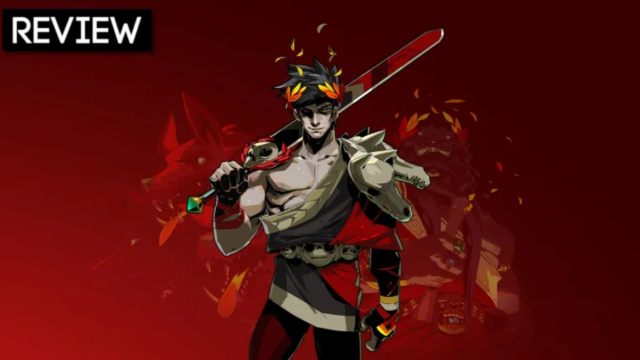
Leave a Reply